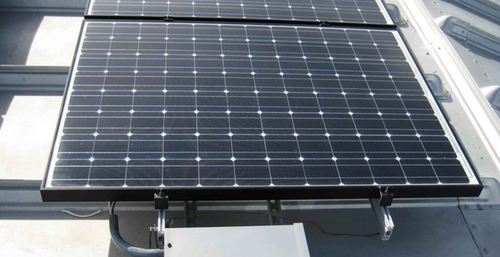The Inconvenient Truth About Solyndra
Authored by David Hill & Jeffrey Kupfer via RealClear Wire,
When Republicans in Washington talk about energy policy, one word often comes up: Solyndra. Before the recent elections, headlines blared about this defaulted government loan guarantee – “Republicans look for the next Solyndra.”
With Republicans now controlling the U.S. House of Representatives, should they actually “look for the next Solyndra”? What are the real lessons from it for both Congressional Republicans and the Biden Administration?
We believe there are lessons, and here’s what they are: (1) rigorous underwriting and continual oversight are necessary for government financial support programs – and that’s particularly important now, with billions of dollars in spending newly authorized by the Inflation Reduction Act; (2) loan guarantee decisions must be made solely on technological and financial merit – not politics; (3) defaults may happen with the DOE loan guarantee program – its whole purpose is to take risk. But that never excuses imprudent or politically-motivated risk-taking.
We served as senior officials at the U.S. Department of Energy (DOE) in the George W. Bush Administration, including after Congress authorized the DOE loan guarantee program for innovative energy projects in 2005. We helped write the program’s regulations and stand up the loan programs office (LPO). We were there when DOE started considering Solyndra’s loan guarantee application – though not when DOE approved and issued the guarantee in 2009.
Solyndra, a California solar panel manufacturing company, had requested a loan guarantee for more than $500 million. Near the end of the Bush Administration, the DOE credit committee, which we had created and which consisted entirely of career officials empowered to do a thorough, nonpartisan review of projects, concluded the Solyndra application was, in essence, not ready for prime time.
Despite the pressure DOE was under to issue a loan guarantee, our boss, Energy Secretary Samuel Bodman never even considered overruling that committee. As a result, the Bush Administration did not issue a loan guarantee to Solyndra – or anyone else.
In 2009 however, the American Recovery and Reinvestment Act armed the loan guarantee program with millions in taxpayer dollars and the new Administration wanted to show it could do what the former one hadn’t. Late that year DOE issued Solyndra a $530 million loan guarantee. President Barack Obama even visited the company to tout the program.
Critics argue Solyndra demonstrates all the worst things about government action and federal financial support. They point out the huge financial cost to taxpayers. They cite the political pressure from the highest levels of government. They point to DOE’s legally questionable and ultimately unsuccessful actions to save the project from default and the Obama Administration from embarrassment.
The program’s defenders say sometimes things just go wrong and projects default – it happens in the private sector too. They say the loan guarantee program was created to take risks; and even so, it regularly turns a profit and has a good overall loss experience. They argue Solyndra officials weren’t truthful and that the current LPO office is better staffed and more diligent.
So who’s right?
The DOE loan guarantee program was created to advance innovative technologies, enable new types of energy projects, and improve environmental performance. It was to do that for projects the private financial sector might not be willing or able to support.
With such a program, it is inevitable some projects won’t perform as well as expected. Technology also may develop in unpredictable ways, and economic, market or political trends may unexpectedly change. Defaults may happen, even with a perfectly run program.
That said, the purpose of the DOE program is NOT to take risks only a sucker would take. Political motivations or insufficient diligence can lead to imprudent risk-taking. To avoid that, rigorous and transparent underwriting and oversight are important – particularly right now.
A loan guarantee default that costs taxpayers hundreds of millions of dollars is never a good thing and can never just be waived off. DOE must ensure that if defaults happen, they are not because the underwriting process was short-circuited, program standards were compromised to score political points, special interests were favored, or DOE had focused on financing marquis “signature” projects to score political points.
The country is undergoing an energy transition; accelerating new types of clean energy projects is an important part of that effort. With unprecedented resources and a broad mandate, the DOE loan guarantee program can play a critical role. However, that will only happen if DOE applies careful scrutiny, proceeds with transparency and without political favoritism, and ensures only high quality projects receive guarantees. And both DOE and Congress must conduct vigorous oversight. Failure to do all of these things jeopardizes the loan guarantee program and the clean energy transition itself.
David Hill is a former general counsel of the Department of Energy and an adjunct senior research scholar at the Columbia University’s Center on Global Energy Policy;
Jeffrey Kupfer is a former acting Deputy Secretary of the Department of Energy, an adjunct professor at Carnegie Mellon University’s Heinz School and the president of ConservAmerica.
Tyler Durden
Tue, 01/31/2023 – 19:40
via ZeroHedge News https://ift.tt/WR3Kdgq Tyler Durden
